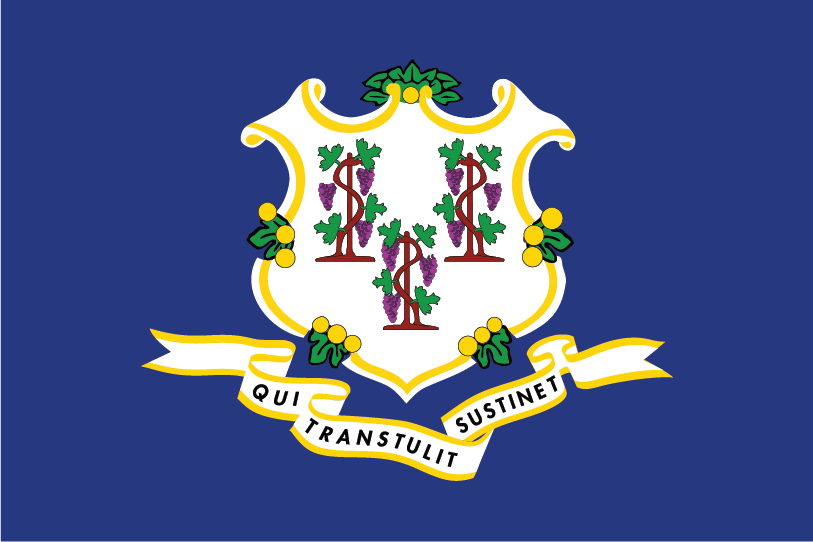Unemployment benefits are a form of financial assistance the government provides to individuals who have lost their jobs and are actively seeking new employment. In Connecticut, the Department of Labor administers the state’s unemployment insurance program, which temporarily offers income to eligible people who’ve lost jobs, which is not their fault.
While unemployment benefits are a critical safety net for many individuals and families in Connecticut, they are not intended to be a long-term solution. Individuals must actively seek new employment opportunities and utilize other resources, such as job training and placement services, to return to the workforce as quickly as possible.
Connecticut Unemployment Services
| Website | https://portal.ct.gov/DOLUI |
| Phone | 800-956-3294 |
| Apply Online | File a Claim |
| Weekly Certification | File a Weekly Claim |
| Appeal a Denial | Request a Hearing |
| Find a Local Office | Office Directory |
| Report Fraud | Anonymous Reporting |
| Coronavirus Updates | Coronavirus Updates |
What Are the Unemployment Benefits in Connecticut?
There are several different types of unemployment benefits and unemployment compensation resources available in Connecticut:
- Unemployment Insurance (UI). This insurance program provides temporary financial assistance to individuals who have lost their jobs and are actively seeking new employment. Eligible individuals can receive up to 26 weeks of benefits and must meet certain wage and work requirements.
- Pandemic Unemployment Assistance (PUA). The PUA is a federal program that provides unemployment benefits to self-employed individuals, gig workers, and other independent contractors who are not eligible for regular UI.
- American Job Center (AJC): The American Job center system is a collection of organizations to help provide job assistance to ready workers who have been unemployed.
Who is Eligible for Unemployment Benefits in Connecticut?
To be eligible for unemployment benefits in Connecticut, you should have lost your job through no fault of your own, be available to work, and currently seeking employment. If you were fired due to willful misconduct or deliberate misconduct, you will probably not be able to receive as much unemployment compensation.
Additionally, you must be a U.S. citizen or authorized to work in the U.S. and meet any other eligibility requirements set by the Connecticut Department of Labor. If you meet all the Connecticut unemployment eligibility criteria, you can apply for unemployment insurance benefits through the state’s Department of Labor website or by phone.
How Do I Apply for Unemployment Benefits in Connecticut?
To apply for Connecticut unemployment benefits, you can file a claim online or by phone. You must provide personal information, employment history, and documentation to support your claim. Once your claim is processed, you will receive a determination of your eligibility and benefit amount. If you are eligible, you need to continue to certify for benefits each week with a weekly claim and report any income or changes in your employment status.
Be honest and accurate when certifying for benefits, as providing false information or deliberately withholding information can result in serious consequences.
What Documentation Do I Need?
To apply for Connecticut unemployment benefits, you may need to have certain documentation and information on hand. Here’s a list of the documents and information you may need to provide:
- Social Security number
- Valid government-issued photo identification
- Contact information
- Employment history
- Proof of income
- Reason for separation
- Alien registration number (if applicable)
- Bank account information (optional)
You may be required to provide additional documentation depending on your specific circumstances. For example, self-employed individuals or independent contractors applying for Pandemic Unemployment Assistance (PUA) will need to provide documentation of earnings from the past year.
How Much Can I Receive in Unemployment Benefits?
The amount of unemployment benefits you can receive in Connecticut depends on your earnings on your base period.
As of 2025, the minimum weekly benefit amount in Connecticut is $42, and the maximum weekly benefit amount is $721. This means that if you earn more than the maximum amount, you will still only receive a maximum of $721 per week.
How Long Can I Receive Unemployment Benefits?
The duration of unemployment benefits in Connecticut varies based on several factors, including your earnings during the base period and the state’s unemployment rate. Under normal circumstances, you can receive benefits for up to 26 weeks. However, during times of high unemployment, additional weeks of unemployment insurance benefits may be available through state or federal programs.
You should also continue to certify for benefits each week and meet all Connecticut unemployment eligibility requirements to receive benefits.
What Happens if I Am Still Unemployed After My Benefits Run Out?
If you are still unemployed after your benefits run out in Connecticut, you may be suitable for additional assistance through other state or federal programs. For example, you may be able to receive assistance through the Supplemental Nutrition Assistance Program (SNAP), the Temporary Assistance for Needy Families (TANF) program, or other programs that provide financial assistance or job training.
You can contact the Connecticut Department of Labor or a local social services agency to learn more about your options for additional assistance. Continue to search for employment opportunities and network with other professionals in your field to increase your chances of finding a job.
What if I Worked in a Different State?
If you worked in another state and lived in Connecticut, you may be eligible for unemployment benefits from the state where you worked, as well as from Connecticut. To apply for benefits, you need to file a claim in the state where you worked, providing your employment history and earnings information.
The state where you worked will determine your eligibility and benefit amount based on their laws and regulations. If you are eligible for benefits from both states, you may be able to choose which state’s benefits to receive.
However, the Connecticut benefits you receive may be affected by any benefits you receive from the other state. Always check the eligibility and benefit rules in both states to ensure you receive the maximum benefits available to you.
Can I Still Receive Benefits if I Quit My Job?
In Connecticut, you may be eligible for unemployment benefits if you quit your job under certain circumstances. You should have quit for a “good cause” related to your work that would make a reasonable person quit. Examples of good cause reasons for quitting may include:
- Unsafe working conditions
- Discrimination or harassment in the workplace
- A significant change in job duties or pay
- Health reasons that make it impossible to continue working
- A spouse’s relocation for work
However, if you quit your job for personal reasons that are not related to your work, such as to go back to school or to care for a family member, you may not be eligible for unemployment benefits.
The Connecticut Department of Labor will review your case and determine whether you are eligible for unemployment benefits. However, even if you are eligible for benefits, your former employer may contest your claim and challenge your eligibility, which could result in a hearing or appeal process.
What if I Refuse a Job Offer While on Unemployment?
If you refuse a job offer while receiving unemployment benefits in Connecticut, you may lose your eligibility for further benefits. To continue receiving benefits, you must be actively seeking work and willing to accept any suitable job offer that comes your way.
If you refuse a job offer, the employer may report this to the Connecticut Department of Labor, which can lead to an investigation of your claim. If it is determined that you refused a suitable job offer without good cause, your benefits may be denied or reduced.
Can I Receive Unemployment Benefits as a Part-Time Worker in Connecticut?
Yes, you may be eligible for unemployment benefits in Connecticut if you are a part-time worker.
If your reduced hours are due to a lack of work, you may be eligible for partial benefits based on your reduced wages. However, if you are working full-time hours, you will not be eligible for benefits. You must also continue to meet all other eligibility requirements, such as being able and available to work and actively seeking employment.
How is My Weekly Benefit Amount Calculated?
Your earnings are utilized to determine your total base period wages, which are then broken down by 26 to get your benefit amount weekly. The minimum benefit amount in Connecticut is $42 weekly, and the maximum is $721.
Additionally, your benefit amount may be adjusted based on other factors, such as any dependents you have or any additional income you are receiving.
What if I Make a Mistake While Certifying for My Benefits in Connecticut?
If you make a mistake while certifying for your benefits in Connecticut, you should contact the Department of Labor as soon as possible to correct the error. Depending on the type of mistake, it could impact your eligibility for benefits or the amount you receive.
If the mistake was minor, it might not have any effect on your benefits, but if it was a significant error, it could result in an overpayment or underpayment. If you receive benefits you are not entitled to, you may be required to repay the overpayment, and if you are underpaid, you may need to file an appeal.
Check us out at Benefits.com and take our quiz so we can get started helping you on your path to receiving benefits.
 Benefits.com Advisors
Benefits.com Advisors
With expertise spanning local, state, and federal benefit programs, our team is dedicated to guiding individuals towards the perfect program tailored to their unique circumstances.
Rise to the top with Peak Benefits!
Join our Peak Benefits Newsletter for the latest news, resources, and offers on all things government benefits.




















